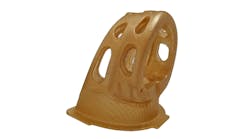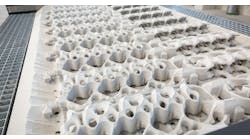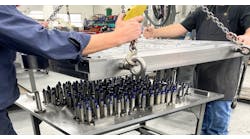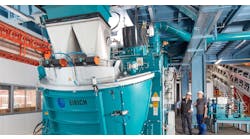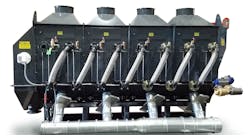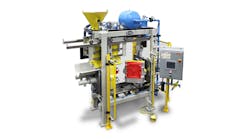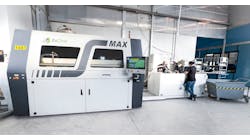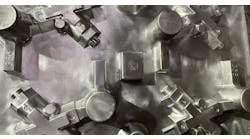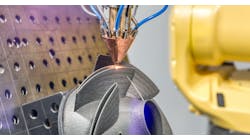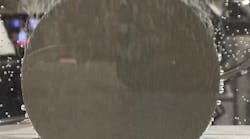An age-old problem with molding wax patterns has been achieving proper fill. Molds that do not fill completely will form defective parts. Trapped air, part distortion, cracking, and knit lines are all problems that can be resolved with a self-venting mold steel. Vortex® is a micro-porous steel material, designed to be used in strategic areas of the die, which helps to eliminate many of these common problems, which of course will reduce scrap rates and downtime — all while contributing to production of higher-quality cast parts.
Vortex is a stainless steel alloy that is 25% air by volume, with a pore size that is 7 microns on average and a hardness comparable to 43 HRc. This micro-porous structure allows air to escape, but those pores are too small to allow wax to penetrate. The material is available in various rectangular and round sizes and is adopted especially for foundries producing lost-wax core castings to supply demanding industries, including medical, aerospace, consumer products, and jewelry.
There are many ways that a self-venting mold steel helps to make higher quality parts. Summarized here are several typical molding problems for investment castings, and how they will be addressed or eliminated by adopting a self-venting steel:
Problem: Mold does not fill.
Remedy: Eliminate trapped air in the die. A Vortex steel mold will allow trapped air to escape through the steel to atmosphere.
Problem: Flashing.
Remedy: Lower injection pressure / flow rate. Vortex steel is malleable for lower pressure and flow rate, but still achieves reliable fill and produces a quality part.
Problem: Part distortion / cracking.
Remedy: Lower die and wax temperatures and reduced vacuum seal on wax parts. Vortex steel allows for lower die and wax temperatures, and also offers the benefit of reversed air-pressure, to help break the vacuum seal on the wax part during ejection.
Problem: Flow and knit lines.
Remedy: Add better die venting. Vortex steel allows the tool maker to place the venting steel where it’s necessary according to the design of the mold. Because of the lower back pressure, the wax flows more quickly and easily.
Problem: Sink.
Remedy: Reduce wax temperature while increasing flow rate. Vortex steel will allow for a lower wax temperature while increased flow rate is automatic due to reduced back pressure in the die.
Problem: Air bubbles.
Remedy: Add vents in the necessary area. Vortex steel lets the die designer and/or manufacturer place venting wherever it is needed, according to the design of the part.
Venting is the only way to reduce the defects that result from trapped air in an investment casting die. Foundries also have the option to insert this steel anywhere in the die, or to have the entire die made from this self-venting steel. With either approach the result will be less casting scrap and waste, and increased production of higher-quality parts.
Russ Bowen is president of Molder’s World.
